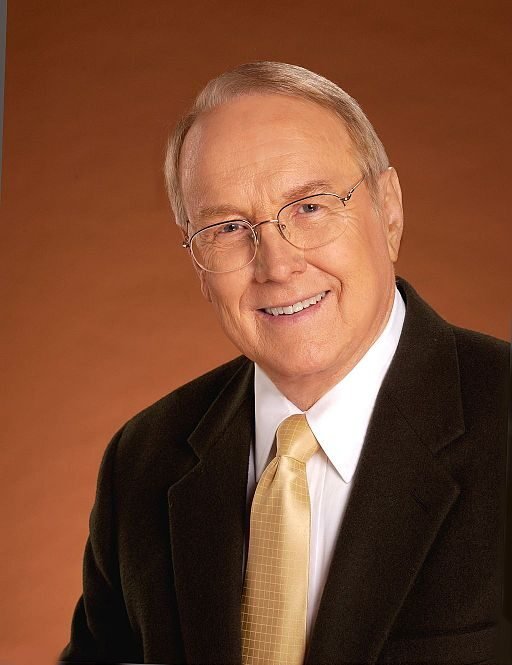Focus on the Family, CC BY-SA 3.0, via Wikimedia Commons
James Dobson, Evangelical Voice and Family Leader, Dies at 89
James Dobson, the founder of Focus on the Family and a defining figure in American evangelicalism, has died at the age of 89. His passing closes a chapter on a life that spanned decades of ministry, media influence, and public debate—one that touched millions of households, shaped political conversations, and, for better or worse, left a lasting imprint on American culture.
Born in Louisiana in 1936, Dobson initially pursued psychology, earning his doctorate and building a career that bridged professional counseling and faith-based guidance. But it wasn’t until he began speaking directly to parents on the radio that his voice really found its audience. In 1977, he launched Focus on the Family, a program that would grow far beyond its original broadcast. What began as a local radio show eventually became a global media ministry, offering books, magazines, counseling resources, and programming in dozens of languages. For many, his words weren’t just advice—they were reassurance, a guiding hand in navigating the often chaotic challenges of raising children and managing family life.
Dobson’s books became household names. Dare to Discipline, When God Doesn’t Make Sense, and other titles were not just read—they were discussed, debated, and often implemented as a blueprint for parenting. He spoke with the conviction of someone who had spent years studying behavior and faith, but he also spoke in a voice that felt personal and urgent, as if he were sitting across from each listener at the kitchen table. Some embraced that voice wholeheartedly; others bristled at what they saw as rigid guidance, particularly regarding discipline and family roles. Yet even critics acknowledged that Dobson had tapped into a deep need, a desire for clarity, structure, and moral grounding.
His influence extended far beyond family rooms. Dobson became a key figure in the religious right, advising multiple U.S. presidents, shaping policy discussions, and mobilizing voters around issues like abortion, marriage, and education. He was a fixture in political conversations for decades, and his counsel was sought by leaders who recognized the breadth of his reach and the loyalty of his following. Of course, that same influence also made him a lightning rod. His positions on LGBTQ rights, corporal punishment, and conversion therapy sparked fierce debate. To supporters, he was a moral compass; to opponents, a controversial and polarizing figure. In either case, his impact was undeniable.
Dobson stepped down from Focus on the Family in 2010, founding a smaller organization that allowed him to focus on direct counseling, speaking engagements, and ongoing media outreach. Even in retirement, his voice carried weight—both in terms of influence and in the ears of countless families who had grown up with him as a constant presence. To many, he wasn’t just a public figure; he was part of their daily routine, a familiar guide through the joys and struggles of raising children and sustaining a family rooted in faith.
Yet beyond the public persona, Dobson was also a husband, father, and grandfather. Married for more than sixty years, he leaves behind a large family that was central to his life. Friends and colleagues often remarked that while he could be passionate, sometimes fiercely so, he was also deeply devoted to those closest to him. That human dimension—the man behind the microphone, the family man behind the public figure—remains an essential part of his story.
As news of his death circulates, reactions are varied but heartfelt. Some reflect on the comfort and guidance his words provided, particularly during moments of personal struggle. Others wrestle with the broader consequences of his influence on politics, education, and social attitudes. And maybe that’s the essence of Dobson’s legacy: a man whose life provoked thought, shaped culture, and evoked both admiration and critique.
The ripple effects of his work will continue. His books will remain on shelves, Focus on the Family will continue its programming, and the conversations he helped start about faith, family, and society will endure. For better or worse, James Dobson was a voice that could not be ignored, one that shaped generations of Americans both in their homes and in the public square.
At the end of the day, whether one agreed with him or not, one truth stands clear: James Dobson’s life was long, consequential, and deeply intertwined with the story of American evangelicalism. He changed how millions of people thought about family, faith, and public engagement, and his absence marks the end of an era that will be remembered, debated, and reflected upon for years to come.

